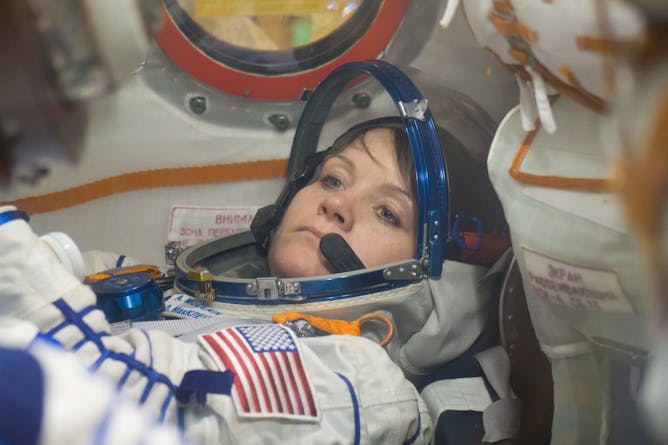Editor's note
|
|
NASA’s lack of spacesuits for women is just the highest-flying example of products designed for white men. Susan Sokolowski, who leads the Sports Product Design Graduate Program at the University of Oregon, argues that designing spacesuits and other performance products for women goes beyond shrinking and pinking. Creating perfect fit products for the female body is vital for helping women perform at their maximum potential.
According to the U.S. Centers for Disease Control and Prevention, 48 million Americans get sick from a foodborne illness every year, and 3,000 die. Food historian and futurist Robyn Metcalfe spotlights a major obstacle for regulators trying to identify the causes of these outbreaks: globalization of the food supply chain.
Artificial intelligence is getting really good at impersonating humans, and it’s only going to get better. Emerging technologies scholar Ana Santos Rutschman explains why it could get scary, fast.
|
Bijal Trivedi
Science and Technology Editor
|

|
|
Top stories
|

Anne McClain of NASA runs through procedures in the Soyuz MS-11 spacecraft during a vehicle fit check Nov. 20.
NASA/Victor Zelentsov
Susan L. Sokolowski, University of Oregon
Designing for women goes beyond just making gear in a size small. By not tailoring equipment and uniforms for women and other underserved people, we prevent them from reaching their full potential.
|

Distribution center for the UK grocer Sainsbury, Waltham Point, England.
Nick Saltmarsh
Robyn Metcalfe, University of Texas at Austin
Globalization is making it harder to identify and trace outbreaks of foodborne illness. Technology can help, but consumers may also have to rethink their food choices.
|

Is this face just an assembly of computer bits?
PHOTOCREO Michal Bednarek/Shutterstock.com
Ana Santos Rutschman, Saint Louis University
When artificial intelligence systems try to behave like humans and make mistakes, they show their limits – but also their startling advances.
|
|
|
|
|
|
|
|
|
From our International Editions
|
-
Tristan Skolrud, University of Saskatchewan
The bulk of Canada’s agricultural production is in the Prairie provinces.
-
Christopher Manser, University of Warwick
Exoplanet discovery can help us work out how the Earth will end its days.
-
Dennis Rodgers, Graduate Institute – Institut de hautes études internationales et du développement (IHEID)
Imaginaries of gangs as inherent forms of brutal anarchy promote particular political agendas and obscure the ways gangs can reveal the underlying dynamics of the contexts within which they emerge.
|
|
|
|
| |
| |
|
|